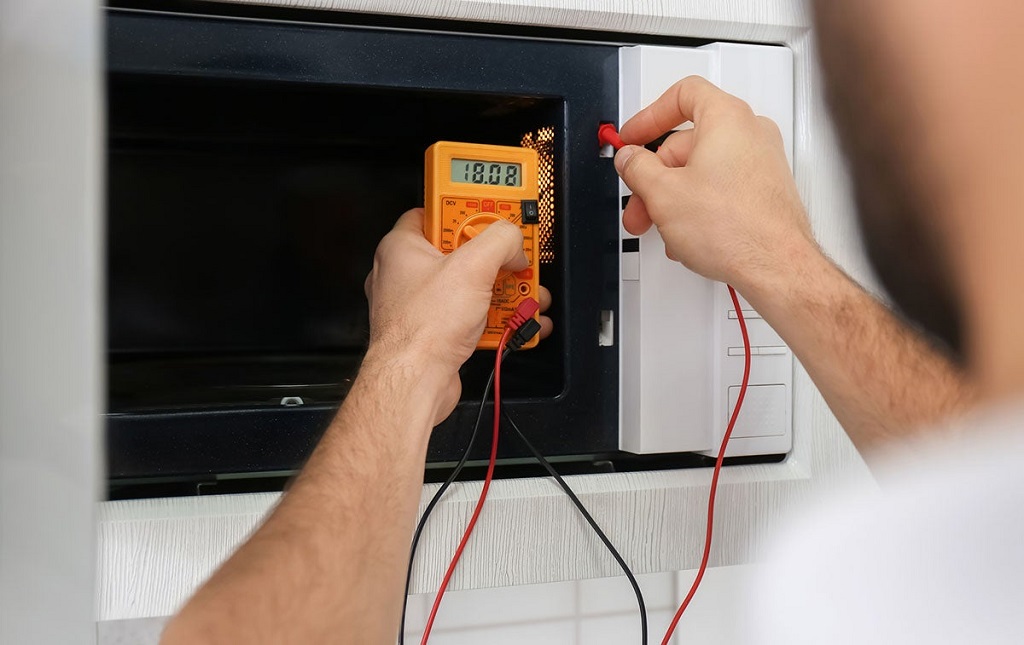Is your microwave oven not heating up your food as it should? A malfunctioning microwave can be frustrating, especially when you rely on it for quick and convenient meals. However, before you rush to replace your microwave or call for professional assistance, there are several troubleshooting steps you can take to potentially fix the issue yourself. In this article, we will guide you through how to repair microwave oven not heating properly.
Check the Power Source
If you are experiencing a 45 degree drywall crack, the first step is to clean the area around the crack and remove any loose or flaking pieces of drywall. Next, use a putty knife to apply joint compound to the crack, smoothing it out as much as possible. Allow the compound to dry completely, which usually takes around 24 hours. Once the joint compound is dry, sand the area until it is smooth and even with the surrounding wall. Finally, apply a coat of paint that matches the rest of the wall to conceal the repair.
Examine the Control Panel
Inspect the control panel of your microwave oven for any error messages or indicators that might suggest a problem. Some microwave models display error codes or messages when certain issues occur. Refer to the user manual specific to your microwave brand and model to understand the meaning of these codes and troubleshoot accordingly.
Reset the Microwave
Performing a simple reset can often resolve minor technical glitches. Unplug the microwave from the power source and leave it disconnected for a few minutes. Then, plug it back in and try heating a small item to check if the problem persists. Resetting the microwave can sometimes clear temporary issues and restore its normal functionality.
Inspect the Door and Door Switches
Microwave ovens have safety mechanisms that prevent them from operating when the door is not properly closed or when the door switches are faulty. Inspect the door for any signs of damage or misalignment. Additionally, check the door switches to ensure they are functioning correctly. If you suspect a faulty door switch, it’s recommended to seek professional assistance as replacing them requires technical expertise.
Verify the High Voltage Diode
The high voltage diode is responsible for converting the high voltage power from the capacitor to the proper level for the magnetron. A defective diode can result in the microwave not heating. To check the diode, you will need a multimeter and knowledge of electrical safety procedures. If the diode is found to be faulty, it should be replaced by a qualified technician.
Test the Magnetron
The magnetron is the component responsible for generating the microwave energy that heats the food. A malfunctioning magnetron can cause the microwave to not heat properly or not heat at all. Testing the magnetron requires expertise and specialized equipment, so it is advisable to consult a professional technician for assistance.
Inspect the Capacitor and Transformer
The capacitor and transformer work in conjunction with the magnetron to produce the necessary power for heating. Faulty or damaged capacitors or transformers can lead to heating issues in the microwave. These components store high voltages even when the microwave is unplugged, so it is crucial to exercise extreme caution and seek professional help for testing and replacement.
Check the Thermal Cutoffs and Thermostat
Microwaves have thermal cutoffs and thermostats as safety features to prevent overheating. If these components are defective, they can disrupt the heating process. Use a multimeter to test these parts for continuity and replace them if necessary. Ensure you follow safety procedures and disconnect the microwave from the power source before attempting any repairs.
Clean the Interior
A dirty or greasy interior can interfere with the proper functioning of a microwave. Food particles and residue can cause arcing and affect the microwave’s ability to heat. Clean the interior of your microwave thoroughly using mild soap and water, and avoid using abrasive cleaners or harsh chemicals that may damage the surfaces.
Consult a Professional Technician
If none of the troubleshooting steps mentioned above resolve the issue, it is advisable to seek professional assistance. A qualified technician with expertise in microwave oven repairs will be able to diagnose the problem accurately and recommend appropriate solutions.
Conclusion
Repairing a microwave oven that is not heating can be challenging, but with the right troubleshooting steps, many common issues can be resolved. Start by checking the power source and examining the control panel, incorporating some basic kitchen skills. Perform a reset, inspect the door and door switches, and test the high voltage diode and magnetron. Additionally, check the capacitor, transformer, thermal cutoffs, and thermostat. Regularly cleaning the interior is crucial to maintain optimal performance. If all else fails, don’t hesitate to contact a professional technician for assistance.
FAQs (Frequently Asked Questions)
- How much does it cost to repair a microwave oven?
The cost of repairing a microwave oven can vary depending on the specific problem and the technician’s charges. It is recommended to contact a few reputable repair service providers and request quotes to get an estimate.
- Can I repair a microwave oven myself?
While some minor issues can be resolved through DIY troubleshooting, it is generally recommended to seek professional help for microwave oven repairs. Microwaves contain high voltages and complex components that require specialized knowledge and tools for safe and accurate repairs.
- Is it worth repairing an old microwave oven?
The decision to repair or replace an old microwave oven depends on various factors such as the extent of the problem, the age of the appliance, and the cost of repairs. If the repair cost is significantly high or the microwave is nearing the end of its expected lifespan, it might be more cost-effective to invest in a new one.
- Why is my microwave oven not heating but still running?
If your microwave oven is running but not heating, it could indicate a problem with the magnetron, high voltage diode, capacitor, or other heating components. It is recommended to consult a professional technician to diagnose and fix the issue.
- How can I prevent microwave oven heating problems in the future?
To prevent microwave oven heating problems, ensure that you use microwave-safe cookware and avoid metal or aluminum foil in the microwave. Clean the interior regularly, avoid overloading the microwave, and follow the manufacturer’s guidelines for usage and maintenance.






